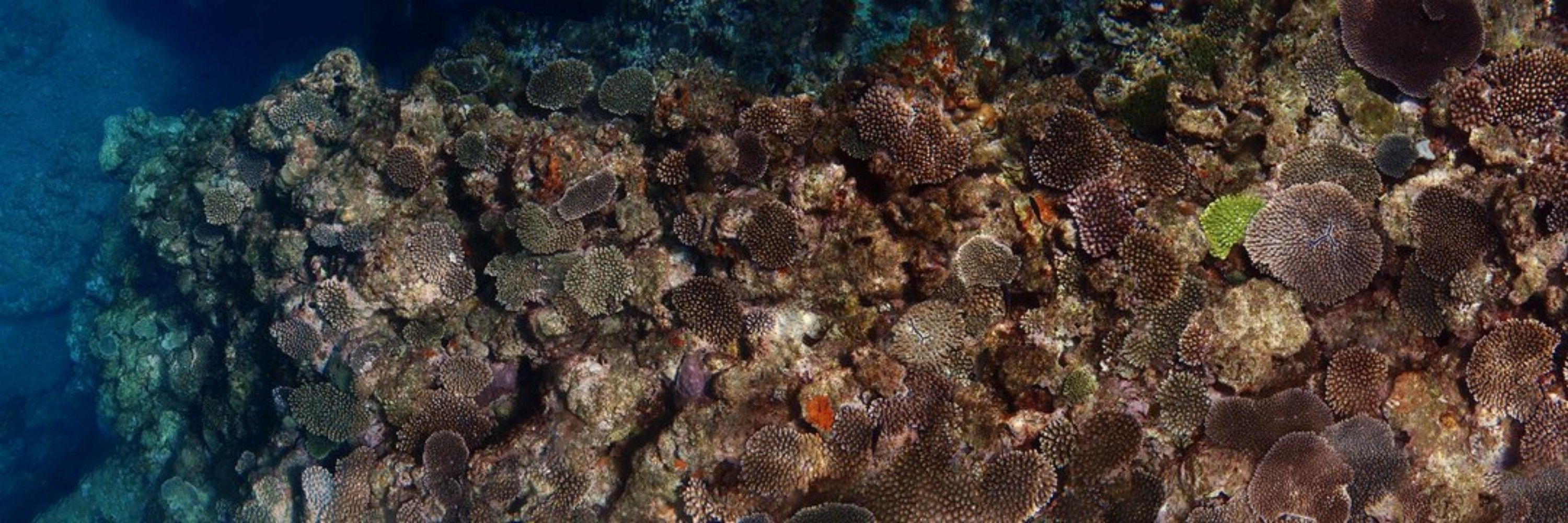
James Guest at 11.30am on a 5- year selective breeding trial
& myself at 12.00pm on natural adaptation and importance of which trait we choose for breeding
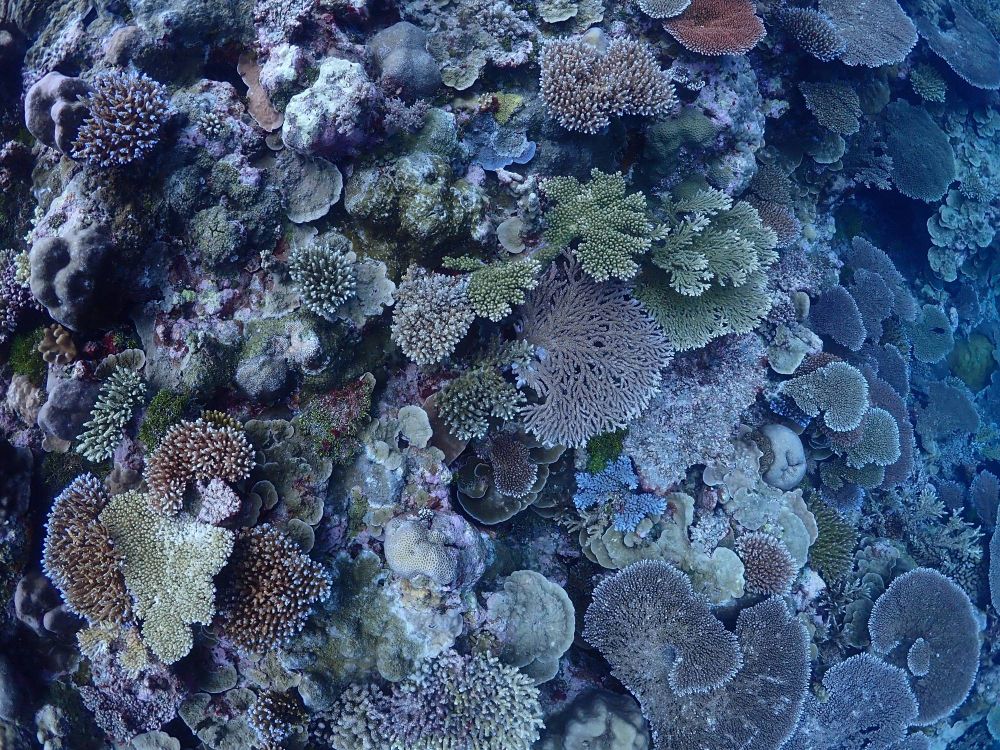
James Guest at 11.30am on a 5- year selective breeding trial
& myself at 12.00pm on natural adaptation and importance of which trait we choose for breeding
(12/12)
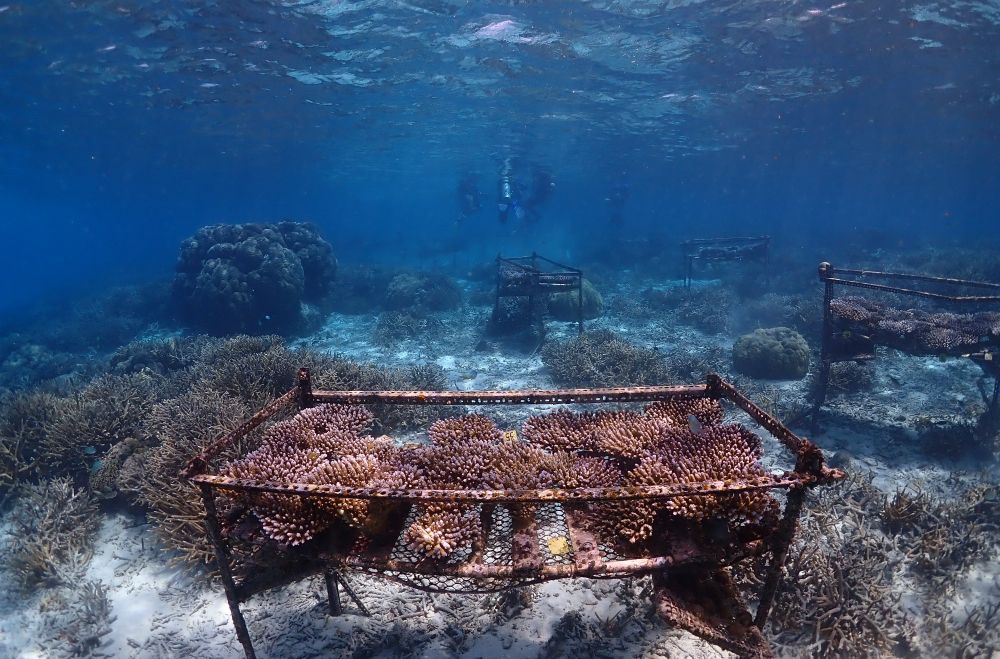
(12/12)
& wonderful coauthors: YM Bozec, J Bythell, @simondonner.bsky.social, H East, AJ Edwards, Y Golbuu, M Gouezo, J Guest, A Humanes, C Riginos & P Mumby
(11/12)

& wonderful coauthors: YM Bozec, J Bythell, @simondonner.bsky.social, H East, AJ Edwards, Y Golbuu, M Gouezo, J Guest, A Humanes, C Riginos & P Mumby
(11/12)
(10/12)

(10/12)
It's also a call away from complacency. Adaptation may well help maintain coral populations if we can deliver on decarbonisation.
(8/12)

It's also a call away from complacency. Adaptation may well help maintain coral populations if we can deliver on decarbonisation.
(8/12)
This holds true even for an upper limit of adaptive potential, where heat tolerance is 100% genetically determined & inherited perfectly.
(7/12)

This holds true even for an upper limit of adaptive potential, where heat tolerance is 100% genetically determined & inherited perfectly.
(7/12)
Including adaptation in our model can make the difference between Acropora corals being lost vs. persisting, albeit with a potential loss of reef function
(6/12)

Including adaptation in our model can make the difference between Acropora corals being lost vs. persisting, albeit with a potential loss of reef function
(6/12)
But if we can achieve Paris Agreement commitments and limit warming to 2°C, then natural selection could allow Acropora populations to thrive beyond 2050.
(5/12)

But if we can achieve Paris Agreement commitments and limit warming to 2°C, then natural selection could allow Acropora populations to thrive beyond 2050.
(5/12)
We set out to test whether coral adaptation via natural selection could occur fast enough to keep pace with ocean warming.
(3/12)

We set out to test whether coral adaptation via natural selection could occur fast enough to keep pace with ocean warming.
(3/12)
on corals and climate change in Science
Adaptation via natural selection could determine whether Acropora corals persist under expected levels of global warming
Hyperlinks & explainer thread below ⬇️
(1/12)
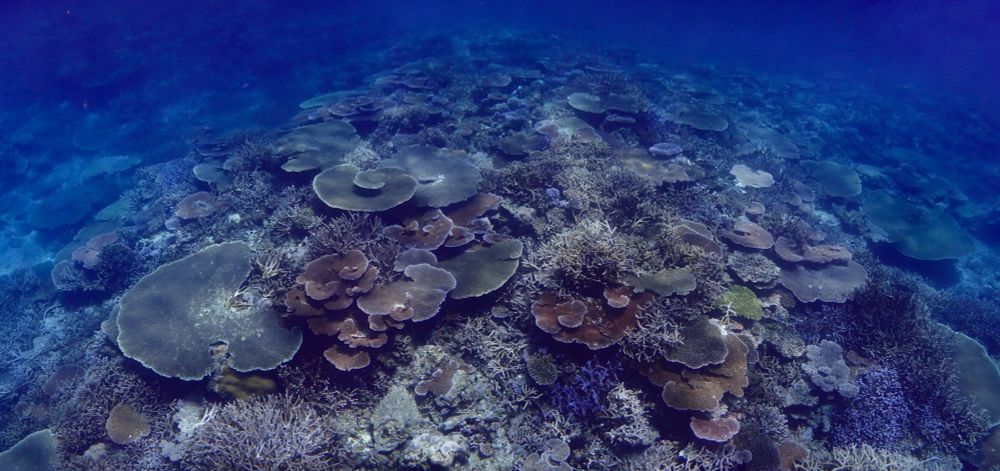
on corals and climate change in Science
Adaptation via natural selection could determine whether Acropora corals persist under expected levels of global warming
Hyperlinks & explainer thread below ⬇️
(1/12)

doi.org/10.1016/j.tr...
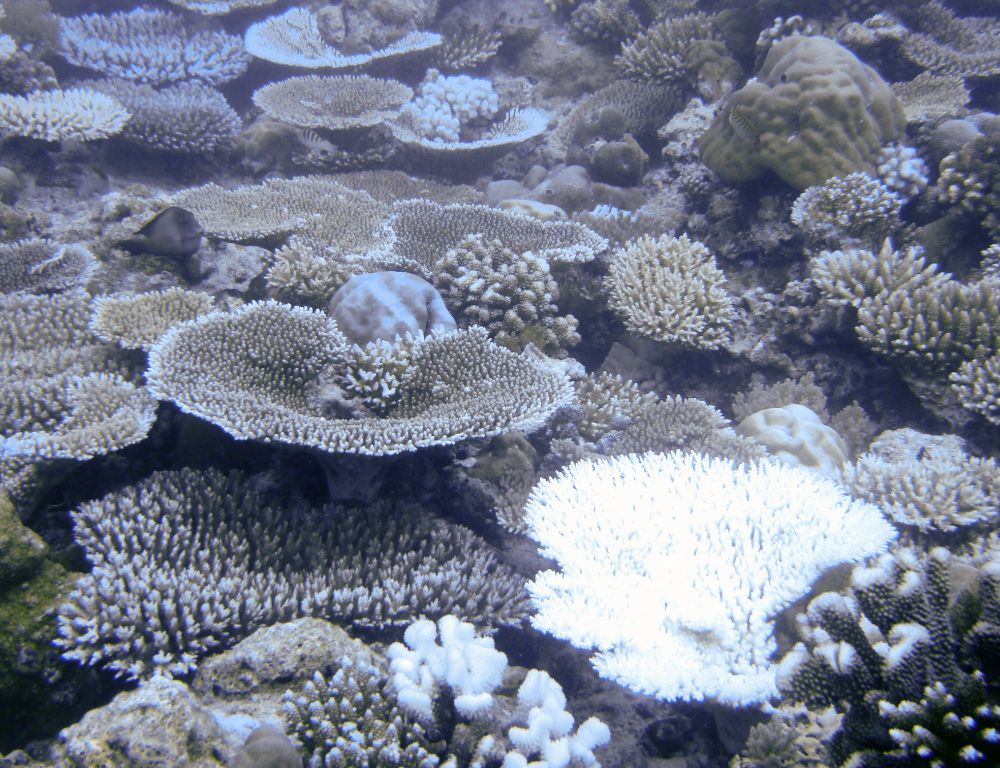
doi.org/10.1016/j.tr...
Part of the fruitful Coralassist Lab - PICRC collaboration, with support from the Horniman Museum, Uni. Of Exeter, Derby Uni. & Uni. Victoria
Funded by ERC, with support from UKRI / NERC
(9/9)
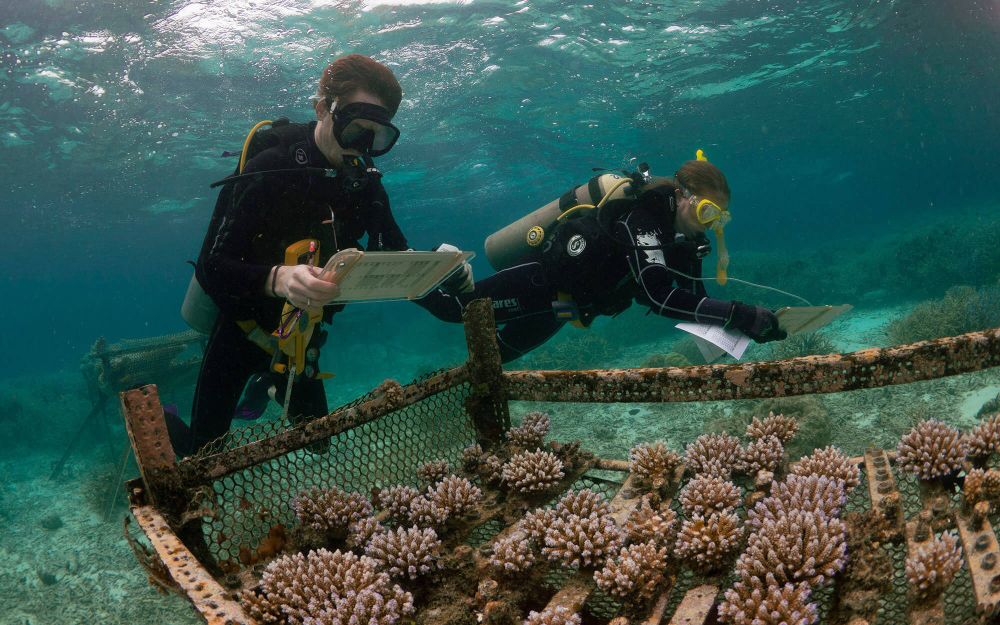
Part of the fruitful Coralassist Lab - PICRC collaboration, with support from the Horniman Museum, Uni. Of Exeter, Derby Uni. & Uni. Victoria
Funded by ERC, with support from UKRI / NERC
(9/9)
R&D is needed to optimise breeding interventions and maximise positive impacts.
Ultimately, reefs still depend on rapid reductions in greenhouse gas emissions.
(8/9)
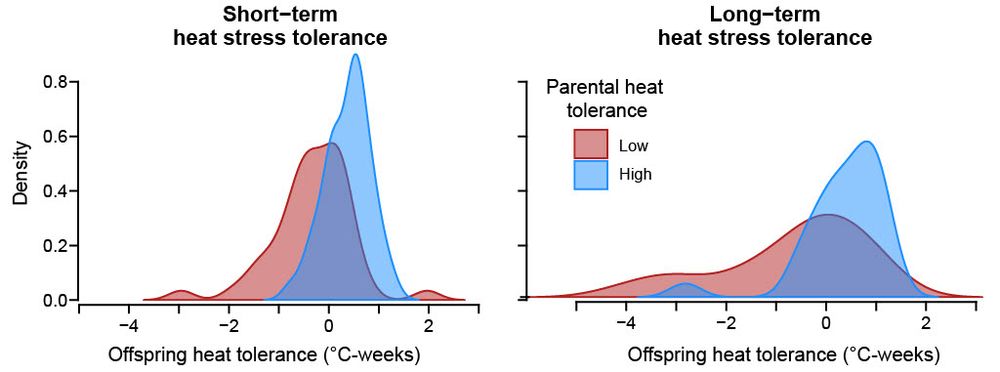
R&D is needed to optimise breeding interventions and maximise positive impacts.
Ultimately, reefs still depend on rapid reductions in greenhouse gas emissions.
(8/9)
To maximise coral fitness in the face of climate change, care will be needed when selecting which traits to breed for.
(7/9)
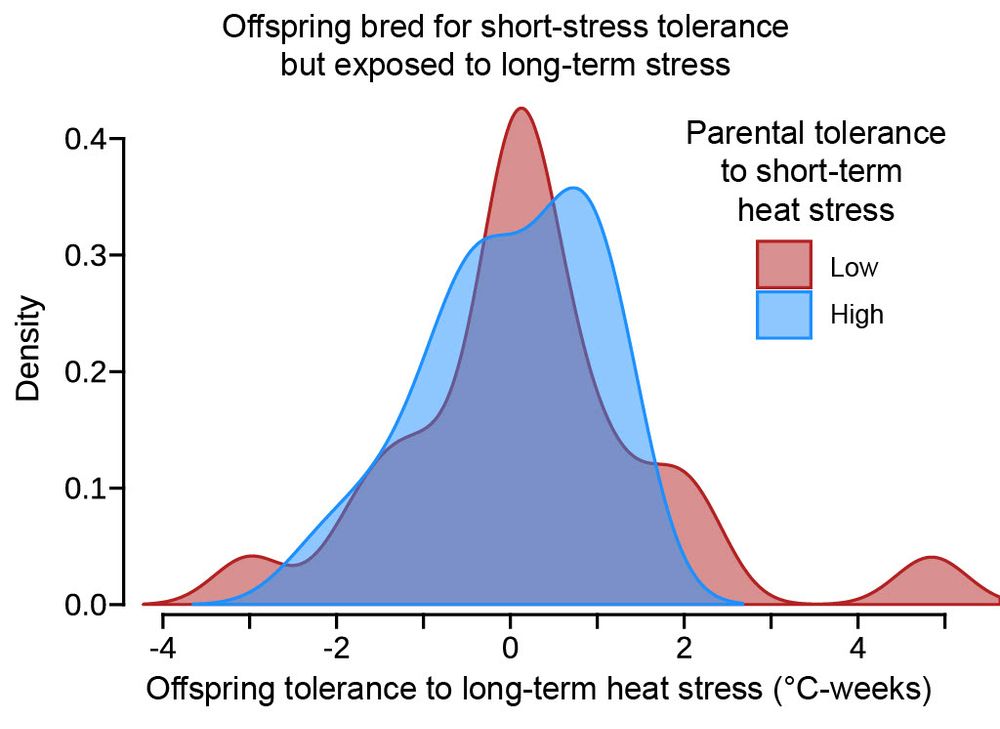
To maximise coral fitness in the face of climate change, care will be needed when selecting which traits to breed for.
(7/9)
The heritability of heat tolerance traits was ~0.2-0.3.
This means these traits have a substantial genetic basis but are also heavily influenced by other non-genetic factors.
(6/9)
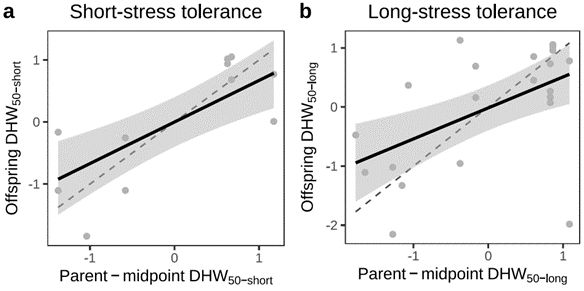
The heritability of heat tolerance traits was ~0.2-0.3.
This means these traits have a substantial genetic basis but are also heavily influenced by other non-genetic factors.
(6/9)
They can withstand the heat stress for a longer duration before the onset of bleaching and mortality.
(5/9)
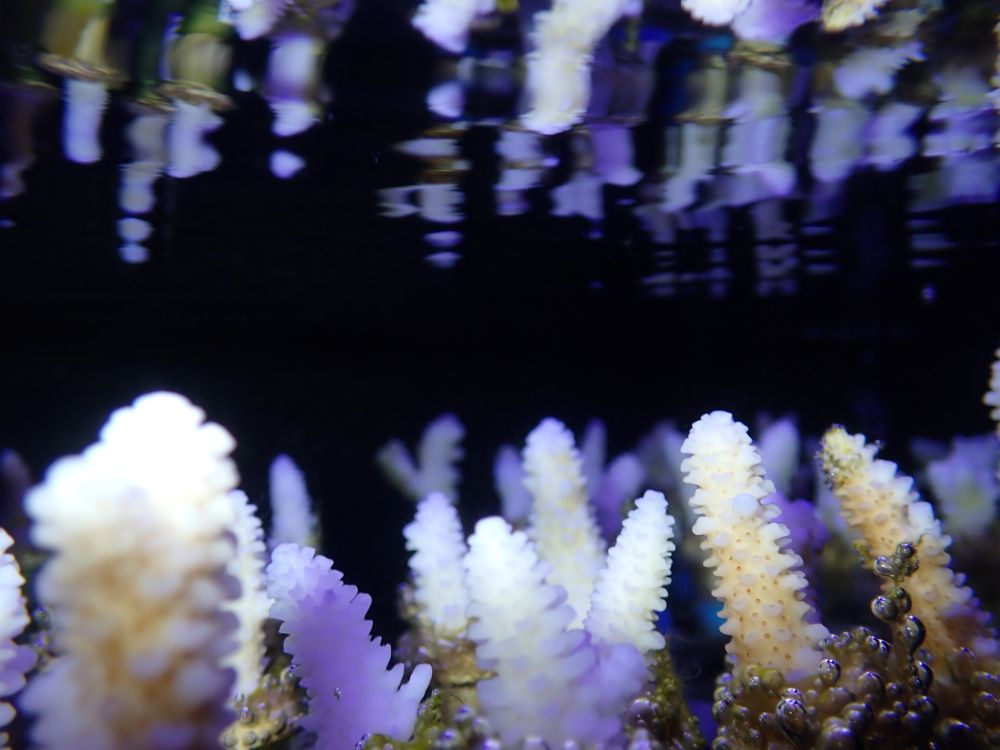
They can withstand the heat stress for a longer duration before the onset of bleaching and mortality.
(5/9)
At this stage, the offspring were exposed to the same heat stress tests that were used years before to select their parents.
(4/9)
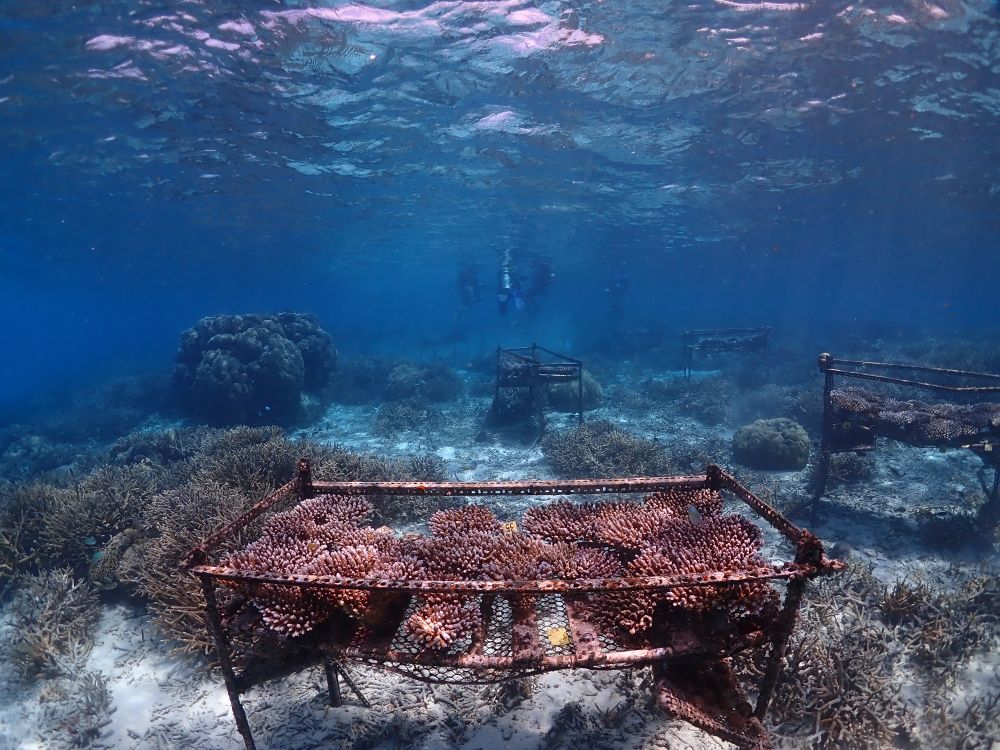
At this stage, the offspring were exposed to the same heat stress tests that were used years before to select their parents.
(4/9)
- a short-term ~1-week +3.5 °C heat stress
- long-term ~1-month +2.5 °C heat stress
(3/9)
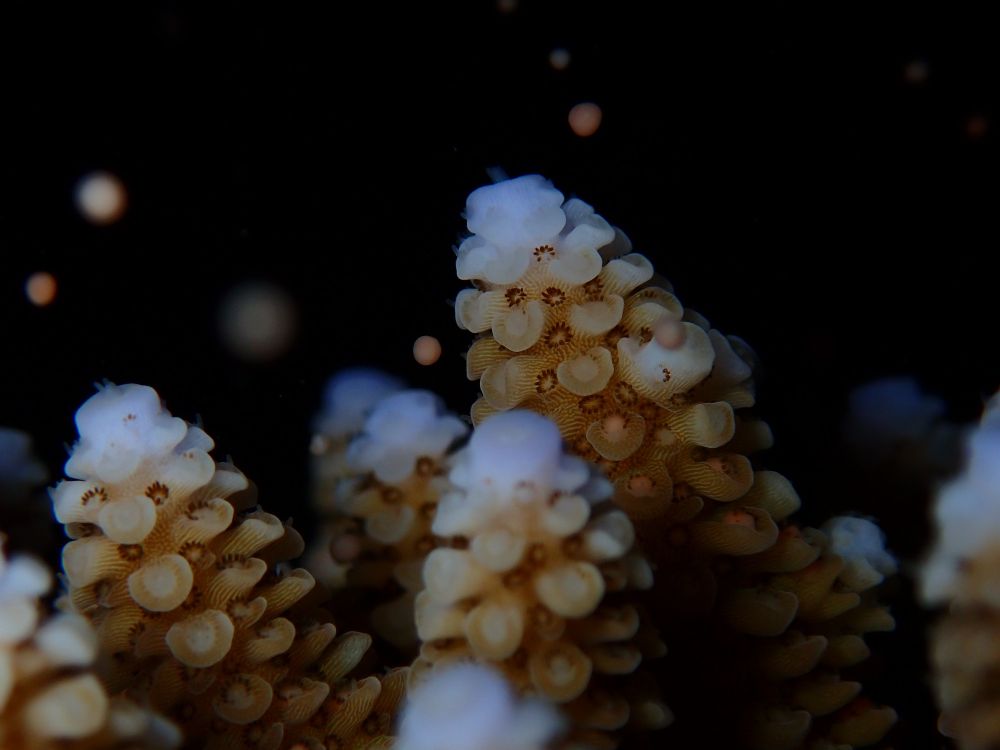
- a short-term ~1-week +3.5 °C heat stress
- long-term ~1-month +2.5 °C heat stress
(3/9)
Whether corals can adapt fast enough remains uncertain, leading to calls for assisted evolution.
Since 2017, the Coralassist Lab & PICRC Palau have been testing whether selective breeding is a feasible option.
(2/9)
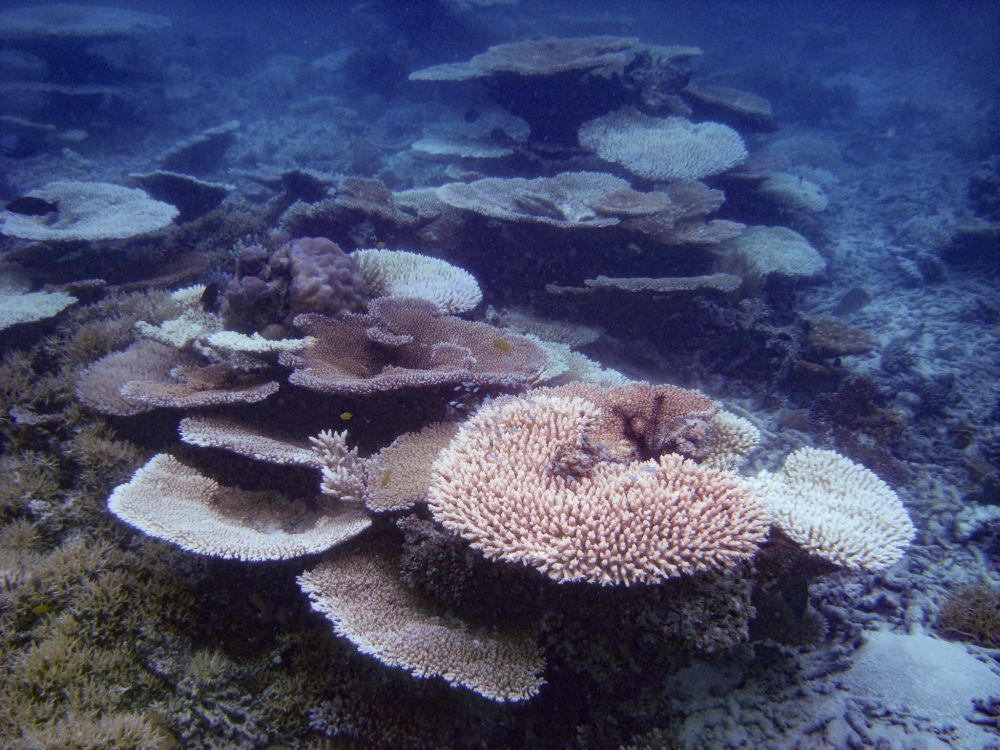
Whether corals can adapt fast enough remains uncertain, leading to calls for assisted evolution.
Since 2017, the Coralassist Lab & PICRC Palau have been testing whether selective breeding is a feasible option.
(2/9)
Selective breeding enhances tolerance of corals to marine heatwaves
Take-home messages:
- Breeding corals for heat tolerance is feasible
- R&D is now needed to optimise outcomes
- Not a silver bullet solution
- We still need rapid climate action
bit.ly/4h0Tc0P
(1/9)
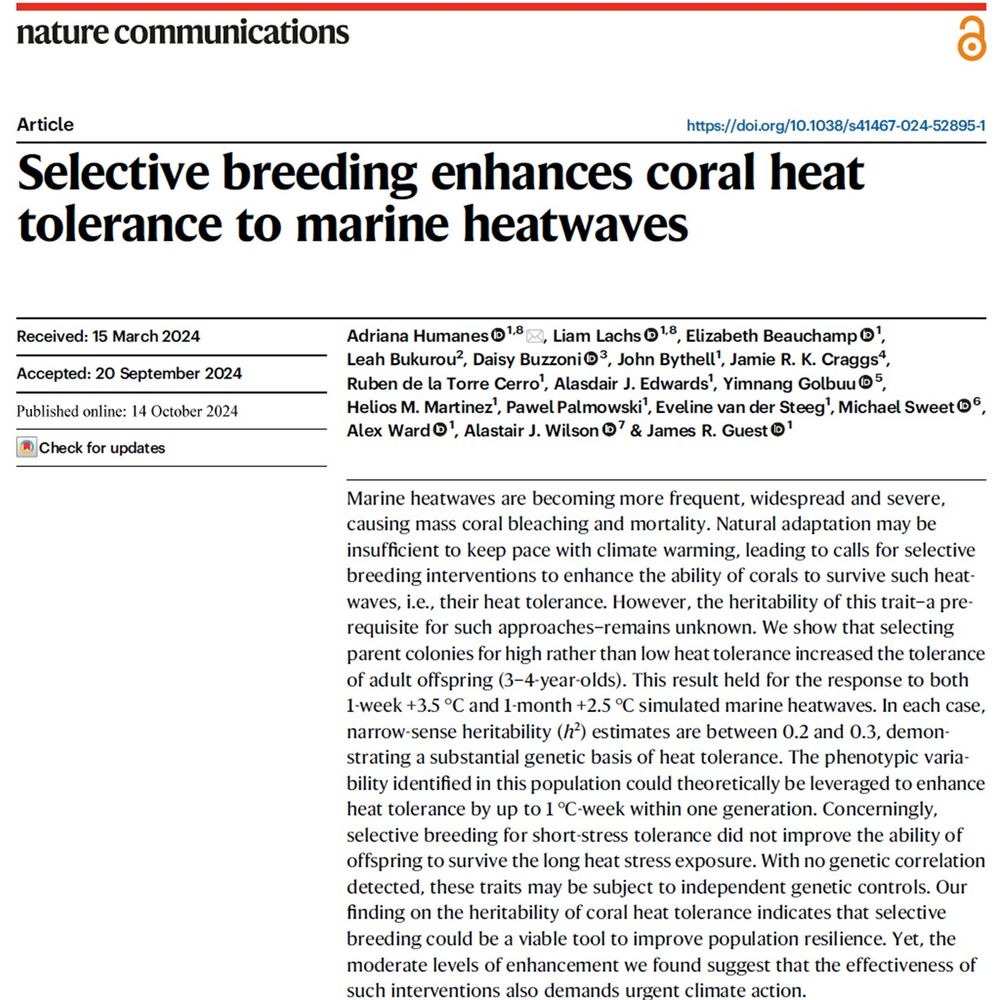
Selective breeding enhances tolerance of corals to marine heatwaves
Take-home messages:
- Breeding corals for heat tolerance is feasible
- R&D is now needed to optimise outcomes
- Not a silver bullet solution
- We still need rapid climate action
bit.ly/4h0Tc0P
(1/9)
picrc.org/new-picrc-st...

picrc.org/new-picrc-st...
Advisors James Guest, Pete Mumby, Holly East & John Bythell
Mentors Adriana Humanes, Simon Donner, Yim Golbuu
Examiners Lisa McManus, Aileen Mill, Andy Suggitt
Support from ONE Planet DTP, NERC, RGS, IDEAWILD, ICRS, Mitacs, Newcastle University
+ many more!!!

Advisors James Guest, Pete Mumby, Holly East & John Bythell
Mentors Adriana Humanes, Simon Donner, Yim Golbuu
Examiners Lisa McManus, Aileen Mill, Andy Suggitt
Support from ONE Planet DTP, NERC, RGS, IDEAWILD, ICRS, Mitacs, Newcastle University
+ many more!!!
🕺Just passed my Valentines Day PhD viva!🎊
📖 with a thesis that ...
🔥explores the heat tolerance of tropical reef corals
- across spatial scales & levels of biological organisation...
🧬models natural selection & future adaptive trajectories
#phdlife

🕺Just passed my Valentines Day PhD viva!🎊
📖 with a thesis that ...
🔥explores the heat tolerance of tropical reef corals
- across spatial scales & levels of biological organisation...
🧬models natural selection & future adaptive trajectories
#phdlife
rdcu.be/dybkE
and thanks to amazing co-lead Piera Biondi + all other coauthors + everyone who makes these long-term studies possible!
(8/8)

rdcu.be/dybkE
and thanks to amazing co-lead Piera Biondi + all other coauthors + everyone who makes these long-term studies possible!
(8/8)

